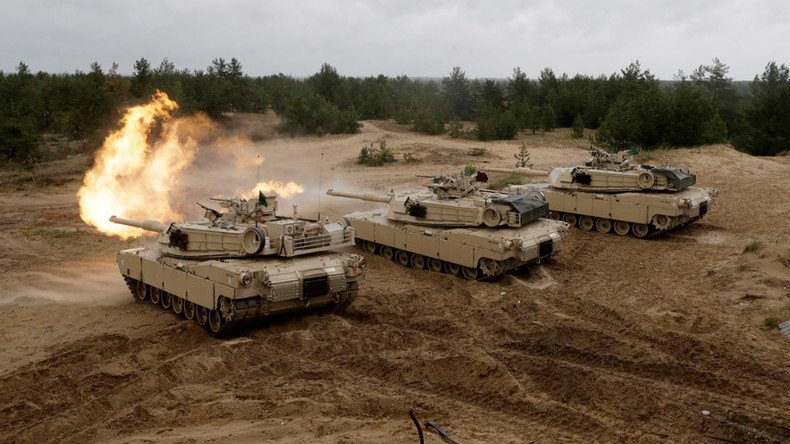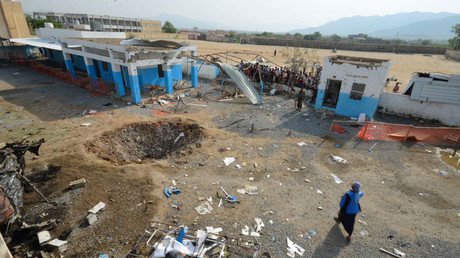US Senate greenlights $1.15bn arms sale to Saudi Arabia

The US Senate gave the go-ahead for a $1.15 billion sale of tanks and other military equipment to Saudi Arabia by blocking the bill opposing the controversial transaction.
The Senate voted 71 to 27 against the resolution to block the billion-dollar sale of tanks, guns and other military equipment.
The resolution was put forward by Senators Rand Paul (R-Kentucky) and Chris Murphy (D-Connecticut), who argued that Saudi Arabia's role in the conflict in Yemen and its human rights record make it a problematic recipient of American arms.
The Pentagon announced last month that the State Department had approved the potential sale of more than 130 Abrams battle tanks, 20 armored recovery vehicles and other equipment to Saudi Arabia.
In addition to human rights concerns, Paul and Murphy argued the sale might fuel an ongoing regional arms race.
Murphy told Politico prior to the debate that his aim wasn’t necessarily to pass the resolution, but rather to press Saudi Arabia on its role in the civil war in Yemen.
During the debate, Paul said that US involvement in Iraq and Syria was illegal as there was no congressional authorization for it, and that this debate was an indirect vote on the war in Yemen.
“It’s an indirect vote because they won’t allow a direct vote”, he said, adding that Americans deserved to have a debate on “when and where we should be at war."
The opposition went beyond just a weapons sale and into whether the US should be complicit in a Saudi-led war on Yemen.
“People say 'no big deal we are not really at war in Yemen' – well yes we are, we are refueling Saudi bombers that are dropping bombs in Yemen,” Paul said.
“We’ve given Saudi Arabia a hundred billion dollars worth of weapons... So we do need to ask, is Saudi Arabia a good ally?”
We must send a message right now, today to Saudi Arabia: Stop putting Christians to death, stop beheading protesters, stop the abuse.
— Dr. Rand Paul (@RandPaul) September 21, 2016
Murphy argued that all of the Saudi bombs, provided by the US, are being dropped on civilians and Yemen's Houthi faction, rather than being used against “our sworn enemy, Al-Qaeda.”
This war has given opportunity for Al Qaeda and Islamic State (IS, also known as ISIS/ISIL) to grow in leaps and bounds, he said.
“How can you say you’re serious about strangling ISIL when the textbooks that are produced inside Saudi Arabia are the very same textbooks that are handed out to recruit suicide bombers?" Murphy asked on the Senate floor.
Well, at least now senators can't say they didn't know. This seems to have happened as the senate voted. #Yemenhttps://t.co/USpQYFqw8l
— Scott Paul (@ScottTPaul) September 21, 2016
Thank you to the 27 Senators who voted to #StopArmingSaudi! Although we didn't win, we gained new allies in ending crisis in #Yemen. pic.twitter.com/1vJeCXVi4v
— Oxfam America (@OxfamAmerica) September 21, 2016
South Carolina Republican Senator, Lindsey Graham, argued in favour of the Saudi arms package, He said the deal would enable Saudi Arabia to fight ISIL and Al-Qaeda more aggressively and increase the kingdom’s military capability to counter increased threats from Iran.
He argued that the debate should be on re-imposing sanctions on Iran and not on whether to provide arms to Saudi Arabia, dubbing the discussion as “ass backwards”.
Graham said that the Iranians were the bad guys and that Saudi Arabia were US allies, albeit imperfect.
“If you drive this good partner Saudi Arabia away you will one day regret it”.













